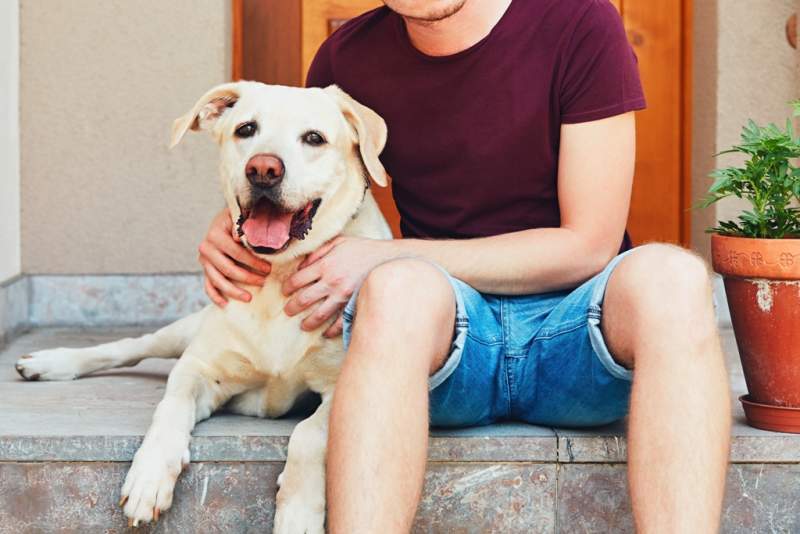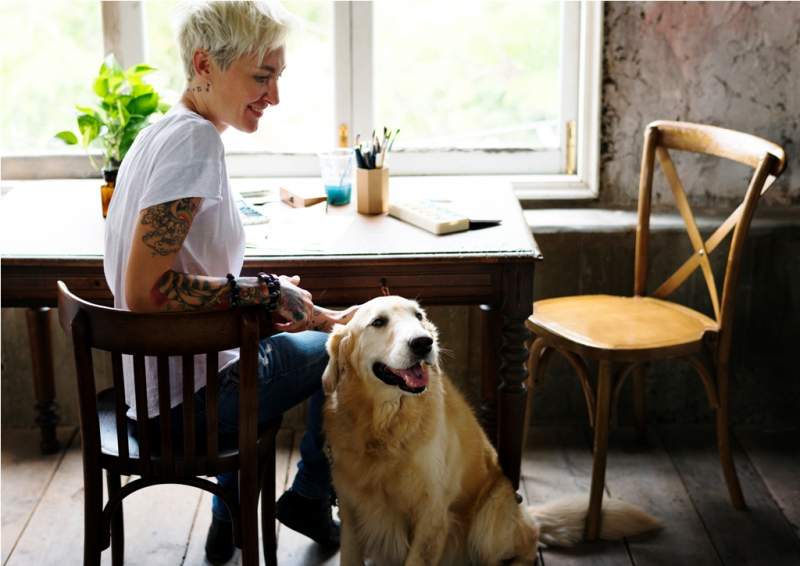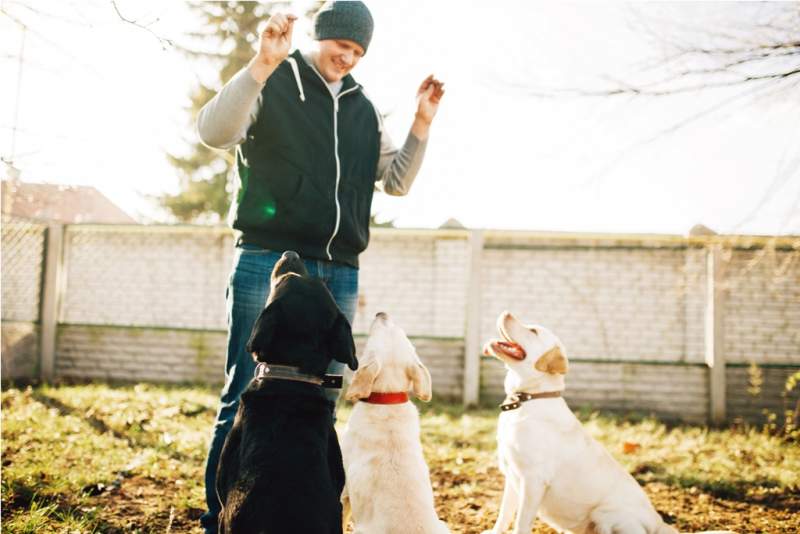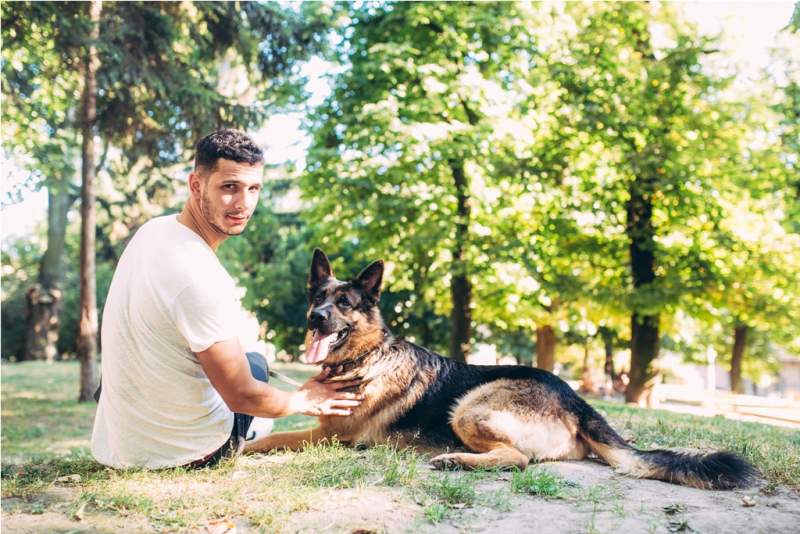Has your doctor recommended that you get an emotional support dog? There’s no question that this is an animal that can do wonders for your mental state if you suffer from some type of disability.
However, not just any ESA will do. Finding the right breed matters. When it comes to finding your ideal service dog, it’s not all about finding the cutest or most charming option. You have to think about your health and needs, as well as the dog’s size, temperament and potential allergies.
While you can research online with services such as Emotional Support Animal Co., you can also use the information here when trying to choose your ESA dog breed.
It’s important to take your time and find a dog breed that will work well for you. When you use the information here, you will be able to reap the most benefits from the Emotional Support Animal you choose.
What to Consider when Choosing an Emotional Service Dog
 While any breed of dog has the potential to be a great service dog, not all options are going to work for your specific set of circumstances or your emotional health. The fact is, many of the dogs that begin the training to be a service animal can’t make it through. There are several reasons for this.
While any breed of dog has the potential to be a great service dog, not all options are going to work for your specific set of circumstances or your emotional health. The fact is, many of the dogs that begin the training to be a service animal can’t make it through. There are several reasons for this.
If you want to make the most of the investment you make in regard to both time and money, then you need to select a breed of dog that will be able to provide you with useful support. According to experts, you should look for a dog that offers:
- The temperament that fits the job you want them to do
- The proper size for your needs/situation
- The coat type that fits the local climate
- The intelligence and strength to assist you on a consistent basis
- The energy necessary to handle your overall activity levels
The same breed won’t work for all situations. Make the right choice by considering the factors here.
Create a List
 Begin with a list of what you need the dog to be able to do during the course of a day. How does your disability affect your life and in what way do you expect the dog to alleviate these challenges?
Begin with a list of what you need the dog to be able to do during the course of a day. How does your disability affect your life and in what way do you expect the dog to alleviate these challenges?
For example, do you want the dog to help you with day to day tasks? Do they need to react to certain stimuli? Does the dog need to distract you, so you don’t engage in certain types of behaviors (i.e. if you suffer from nightmares)?
When creating your list, try to think of everything you find challenging. Is there a way for the dog to assist you? If so, write it down. Taking the time to create a comprehensive list will help ensure you have a good idea of the type of dog you need and want, as well as the type of breed that will be best for your particular situation.
Coat and Size
 If you want your dog to help keep you stable while walking, you need a bigger dog. For balance problems, experts suggest getting a dog that is, minimum, 50 pounds. If you are a larger person, you obviously need a larger dog.
If you want your dog to help keep you stable while walking, you need a bigger dog. For balance problems, experts suggest getting a dog that is, minimum, 50 pounds. If you are a larger person, you obviously need a larger dog.
If you require a dog to alert you to potential danger due to anxiety problems, then smaller dogs work just as well as larger ones.
Keep in mind, a bigger dog is going to take up much more space. Do you have the room to accommodate them? Also, big dogs eat more food, costing you more. These are all factors you need to consider.
If you need a dog for physical support at certain times, then obviously bigger is better. Be sure to consider this carefully to determine the size and type of dog you need.
Another important consideration is the coat the dog has. If you don’t have the energy to brush and groom the dog regularly, then it may be best to choose one with a smooth, short coat.
Finding the Right Dog for Your Personality
 You need to develop a connection with the service dog you choose. This will help you develop a bond and be able to communicate with one another.
You need to develop a connection with the service dog you choose. This will help you develop a bond and be able to communicate with one another.
There’s a reason that dogs are referred to as “man’s best friend.” However, not all dogs and all people will “mesh” well. As a result, you have to put some time and effort to find a dog that will be right for your personality. When you take the time to do this, both you and your dog will be happier.
There are several personality tests online that can help match you to your perfect emotional support dog, so try them out if you aren’t sure.
Keep in mind, when searching for an ESA, you have to consider more than just the dog’s personality. While you need an animal you “connect” with, you also need to consider the animal’s energy levels.
Are you extremely active? Do you need a dog that can keep up with you day after day? Or, do you have mobility issues and therefore live a somewhat stationary life? If you meet the latter, then getting a dog breed that is known for having high energy would not be good for either of you.
The dog would become bored, and could even get destructive, tearing up things in your home. The same is true if you are very active. It’s not a good idea to choose a breed that’s known for being more subdued and liking to spend more time indoors. Consider your activity level carefully and then find a dog that meets and matches these particular needs.
If you need an emotional support dog, be sure to choose the right breed. This will ensure that you reap all the benefits offered by these animals. Also, remember, the right breed for someone else, may not be right for you. Take your time to consider what you are looking for and what you need the dog to help with.
